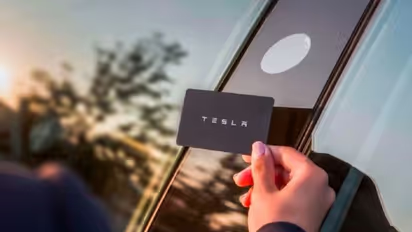Tesla targets mega Make in India option by 2022

Synopsis
Tesla and other manufacturers would generate a larger profit if they established a local manufacturing or assembly factory. Before receiving any import tax breaks, the government wants Tesla to build local production or assembly factories.
The two big-ticket investments in India this year — Tesla and Apple — were supposed to elevate the nation as a brand on the global stage. It would further eliminate reliance on China-led investments in the IT and auto industries that have been pushed back due to the pandemic and global chip shortage. Nonetheless, as Covid slows, both behemoths want to rewrite their India manufacturing stories next year. Elon Musk and Tim Cook both declared a splashy debut into the nation. Musk wants his electric cars to be driven on local roads (despite worries about import duties). In contrast, Cook announced the opening of the first branded retail shop (in Mumbai) and a focus on assembling/manufacturing more Apple items.
However, the second Covid-19 wave and a severe scarcity of automobile semiconductors have hindered their ambitions for the year. According to Soumen Mandal, research analyst (IoT, automotive, and device ecosystem) at Counterpoint Research, India is expected to become one of the significant EV markets shortly. Tesla is well aware of this.
Also Read | Beating Tesla, Lucid Motors' Air Dream Edition becomes 1st electric vehicle to clock 836 km
He stated that none of the major automakers wants to pass up the potential to gain a market share in India. Because of the low cost of supplies and labour, Tesla and other manufacturers would generate a larger profit if they established a local manufacturing or assembly factory. Before receiving any import tax breaks, the government wants Tesla to build local production or assembly factories.
This semiconductor scarcity has harmed the automobile sector, which has become a significant user of microchips. While most manufacturers estimate that the chip scarcity will last until 2023, Tesla CEO Elon Musk believes things will improve beginning in 2022. The Indian passenger vehicle industry is dominated by automobiles priced under Rs 10 lakh. Still, Tesla's current Model 3 prices (about Rs 29 lakh without import and other taxes) places the car in the premium sector, and the premium segment's market share in the country was just 7% in 2020.
Also Read | Tesla to launch $25,000 electric car without steering wheel in 2023?
Stay updated with all the latest Business News, including market trends, Share Market News, stock updates, taxation, IPOs, banking, finance, real estate, savings, and investments. Track daily Gold Price changes, updates on DA Hike, and the latest developments on the 8th Pay Commission. Get in-depth analysis, expert opinions, and real-time updates to make informed financial decisions. Download the Asianet News Official App from the Android Play Store and iPhone App Store to stay ahead in business.